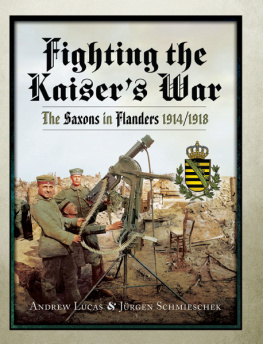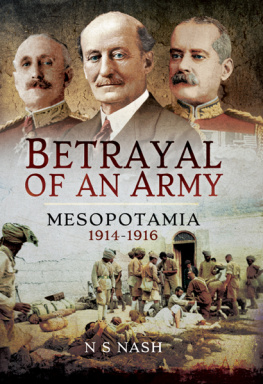
Your Towns and Cities in the Great War

Plymouth
in the Great War
Your Towns and Cities in the Great War

Plymouth
in the Great War
Derek Tait

Pen & Sword
MILITARY
First published in Great Britain in 2014 by
PEN & SWORD MILITARY
an imprint of
Pen and Sword Books Ltd
47 Church Street
Barnsley
South Yorkshire S70 2AS
Copyright Derek Tait, 2014
ISBN 978 1 78346 285 8
The right of Derek Tait to be identified as the author ofthis work has been asserted by him in accordance with theCopyright, Designs and Patents Act 1988.
A CIP record for this book is available from the British Library
All rights reserved. No part of this book may be reproduced or transmitted in any form or by any means, electronic or mechanical including photocopying, recording or by any information storage and retrieval system, without permission from the Publisher in writing.
Printed and bound in England
by CPI Group (UK) Ltd, Croydon, CR0 4YY
Typeset in Times New Roman by Chic Graphics
Pen & Sword Books Ltd incorporates the imprints of Pen & Sword Archaeology, Atlas, Aviation, Battleground, Discovery, Family History, History, Maritime, Military, Naval, Politics, Railways, Select, Social History, Transport, True Crime, and Claymore Press, Frontline Books, Leo Cooper, Praetorian Press, Remember When, Seaforth Publishing and Wharncliffe.
For a complete list of Pen and Sword titles please contact
Pen and Sword Books Limited
47 Church Street, Barnsley, South Yorkshire, S70 2AS, England
E-mail:
Website: www.pen-and-sword.co.uk
Acknowledgements

Thanks to John Van Der Kiste, Steve Johnson, Daisy Parker, Derek Parker, Benjamin Pile, Alan Tait, Ellen Tait, Bruce E Hunt, Tina Coleand Tilly Barker.
CHAPTER 1
1914
Eager for a Fight

Plymouth at the beginning of 1914 was a prosperous town, one of the three towns that would later make up the city in 1928. The two other nearby towns were Devonport and Stonehouse. Amalgamation of the towns took place on 1 November 1914.

Archduke Franz Ferdinand of Austria. Ferdinands assassination in Sarajevo on 28 June 1914 led to Austria-Hungarys declaration of war on Serbia, which ultimately led to the beginning of the First World War.
Rising tensions in Europe and the assassination of Franz Ferdinand in Sarajevo led to Austria-Hungarys declaration of war on Serbia. This led to the Central Powers, which included Germany and Austria-Hungary, and the Allies, which included the British Empire, the French Republic and the Russian Empire, to declare war on each other, which led to the commencement of the First World War on 28 July 1914.
In the early hours of 3 August, the Cunard Canadian service liner Andania entered Plymouth Sound in darkness. A British torpedo boat destroyer came alongside. An officer on the destroyer questioned the liners captain through a megaphone and requested that he dismantle his wireless equipment before proceeding. It was noted that all wireless stations not required by the government were being taken down.
On 3rd August, it was reported in the Eugene Register that:
Passengers arriving today from Montreal on the Cunard line steamer Andania, bound for South Empson, reported that the vessel was met at sea by a British torpedo boat and ordered by wireless to stop. The liner then was led into Plymouth as a matter of precaution against mines. Plymouth was found filled with soldiers and searchlights were seen constantly flashing about the harbour.
On 3 August, there was much excitement when it was announced that the German liner Kronprinzessen Cecilie, travelling from New York to Bremmen, carrying 2,000,000 in gold in her strongroom, would be landing at Plymouth. Also on board were 1,600 mailbags and 150 passengers. However, she abandoned her call at Plymouth and it was reported that she had been sighted off Malin Head on the North coast of Ireland. Speculation in the newspapers suggested that her commander, Captain C. Polack, would try to get to his destination via the north of Scotland. However, the ship later returned to the United States to avoid capture by the British Navy and French cruisers.
On 4 August, just before midnight, the offices of the Western Morning News in Plymouth posted an announcement in their window that Britain had declared war on Germany. One of the newspaper journalists recorded:
SS Kronprinzessin Cecilie. On 3 August 1914, there was much excitement when it was announced that the SS Kronprinzessin Cecilie, carrying 2,000,000 in gold, would be landing at Plymouth. However, the call at port was abandoned and the ship later returned to the United States to avoid capture by the British Navy and French cruisers.

The news caused a profound sensation, several women swooning, and a long murmur of excitement passed through the crowd.
Many people were asleep in their beds and knew nothing of the announcement until the following day when official war notices were placed in newspaper publishers windows and on placards. Newspapers were soon full of the news.
On the day that war was declared residents living in Devonport recalled being kept awake all night as mules and carts carried guns and ammunition out of the dockyard.
People of foreign descent were quickly rounded up and detained.Anyone with a German-sounding accent soon came under suspicion of being a spy. On the evening of 4 August, three men were arrested as they tried to make their way through recently constructed wire entanglements beside Plymouth Sound.
Soon after the announcement, people began panic buying which drove prices up and caused a shortage. The mayor appealed for restraint.
The declaration of hostilities was seen by many with excitement.The war meant more activity in the dockyard, which would lead tomore employment with more ships needing to be built and serviced.Men employed at the dockyard found that their wages increased and were offered overtime and wartime bonuses.
Gladys Cuddeford and her horse, which was later requisitioned for the war. Horses fared badly at the Front and were not expected to return. For many it was a heartbreaking experience being parted from their animals. The Cuddefords were tenant farmers at Barne Farm between 1883 and 1916.

Many felt that the war would all be over by Christmas and there was great enthusiasm as well as patriotism.
The railways were taken under government control under the Regulations of Forces Act of 1871. Local businesses were asked to supply motor vehicles for use by the army and the many farms in and around Plymouth were asked to supply horses.
Next page



















